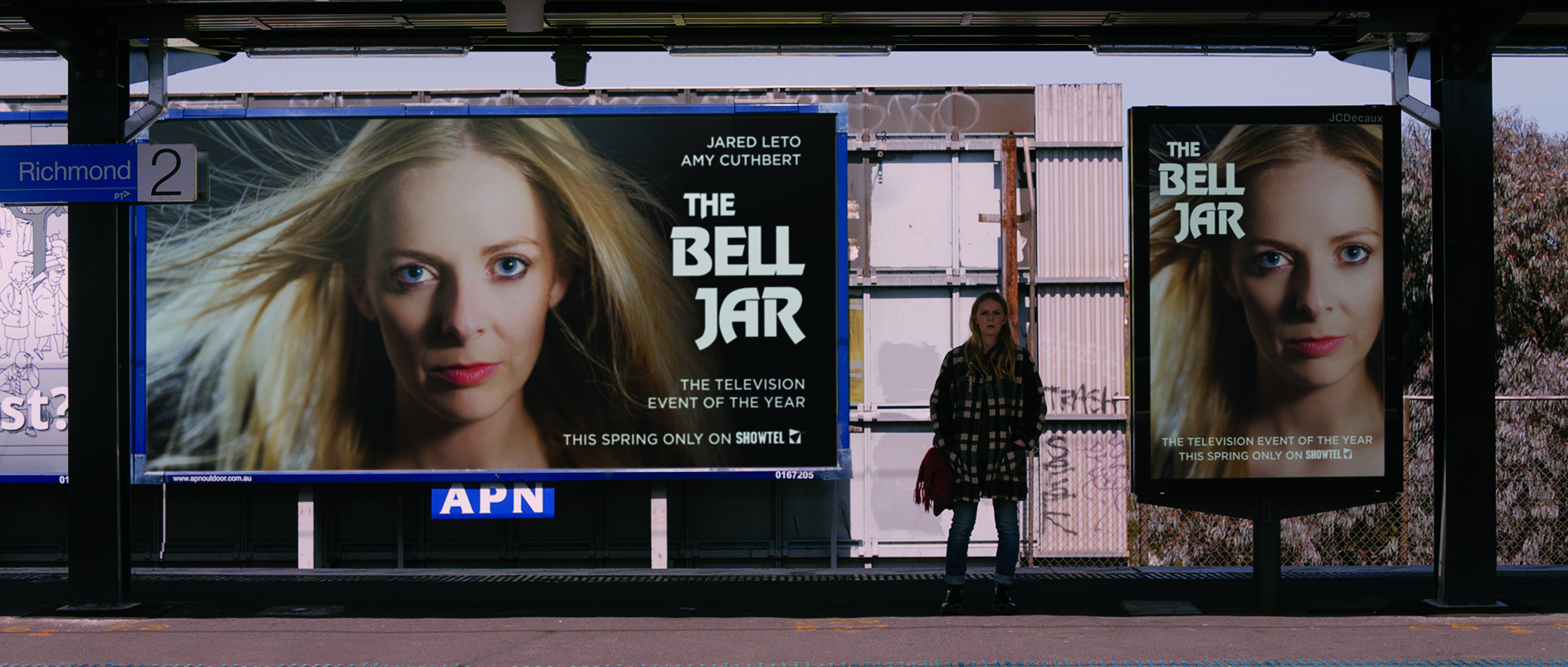There comes a time in many, if not all, twentysomethings’ lives when you realise that perhaps the vision you had for your life isn’t quite how things will actually pan out. In That’s Not Me (2017), lead character Polly (played by co-writer Alice Foulcher) lives that out in a warped – and often humiliating – semi-public eye as the identical twin sister of a famous actress. It’s one thing to live your life with such widespread scrutiny while coming to terms with your identity in your twenties. But it’s a whole other thing to live it out in a purgatory of semi-obscurity, faced with the exact image of what-could-have-been plastered all around town and permeating every aspect of your life – right down to your parents’ indifference to your suffering in the face of the dream-snatcher’s success.
Foulcher and director Gregory Erdstein, who co-wrote the script, both attended Melbourne’s prestigious School of Film and Television at the Victorian College of the Arts. Foulcher, an actress, transferred from the drama department to the film school after becoming disillusioned with acting, meeting Erdstein soon after. One of the first things they worked on together was the short film Picking Up at Auschwitz (Erdstein, 2012); that title probably tells you a little bit about their humour.
The duo are married now, and That’s Not Me is their first feature. I caught up with them to talk about humiliation, crushed dreams and how to create despite both.
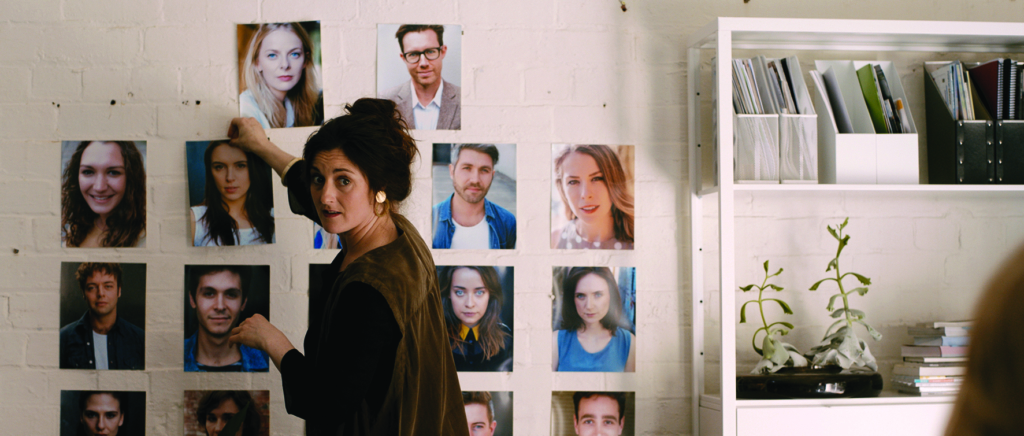
Rebecca Varcoe: I read that, when you went to the US to film That’s Not Me, this was your first time in the States, Alice? And, Gregory, you’ve talked about identifying with American culture as a kid, and there existing a prevailing idea of Hollywood.[1]See Travis Johnson, ‘Gregory Erdstein and Alice Foulcher: Playing the Fame Game in That’s Not Me’, FilmInk, 6 February 2017, <https://filmink.com.au/gregory-erdstein-and-alice-foulcher-playing-the-fame-game-in-thats-not-me/>, accessed 10 August 2017. How much of the film is influenced by being Australian – and being outsiders, in a way?
Alice Foulcher: Yeah! Greg was actually born there, but for me it was my first trip.
Gregory Erdstein: I remember a lecture we had at film school where we were told that, to make an Australian film, you don’t have to set it in the country: it doesn’t have to be in the outback, or mining our history, or anything like that – it can have someone sitting on a toilet in Collingwood, and that’s an Australian film by the fact that you’re in Australia. We didn’t have that in mind when we opened our film on a toilet in Collingwood, but I guess, by the very nature of who we are and where we live, it’s natural that it will always be an outsiders’ film. But we have so many friends who have gone and tried that route of making it in Hollywood – with varying levels of work behind them – and I think that kind of formed the backbone of the perspective of ‘the outsiders going in’.
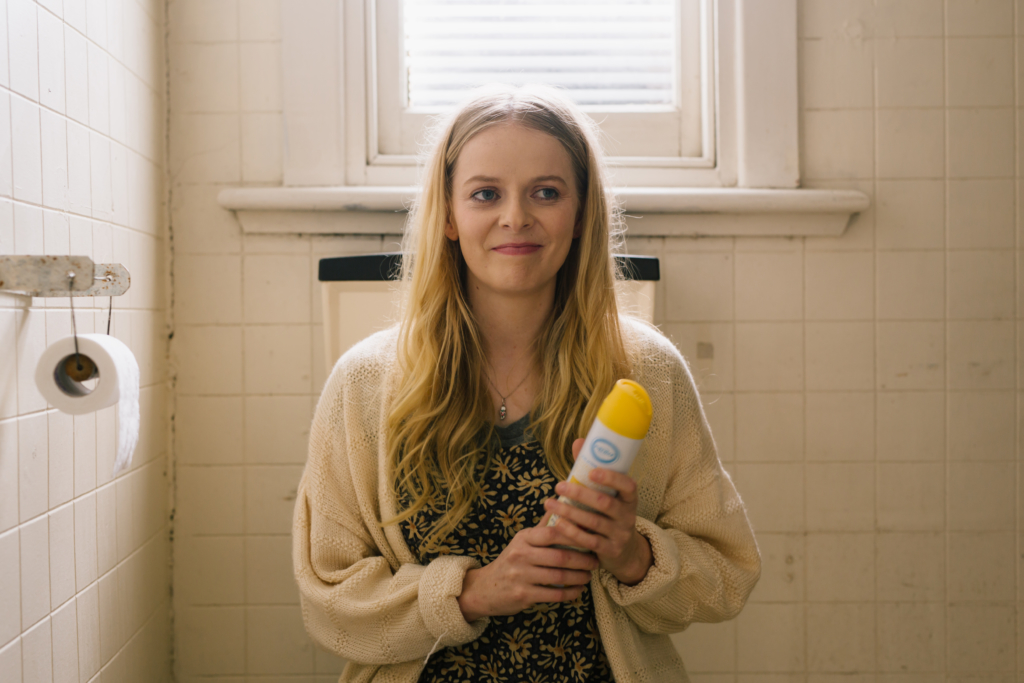
AF: The film reflects on our worldview, and we’ve tried to make it very personal to our own experiences. So it’s only natural, then, that we would experience Hollywood as outsiders.
GE: The funny thing is, when we saw La La Land [Damien Chazelle, 2016], we got to the end of the film and I turned to Alice and said, ‘You know, in a weird way, our film is kind of a demented companion piece to [it].’ La La Land is very much the view of someone who made Whiplash [Chazelle, 2014] and got all these Oscar nominations, and their version of the Hollywood struggler: ‘Yeah, of course they make it in the end, but it’s how they feel inside!’ Whereas in our film, I guess, the typical Aussie view is: ‘Well, of course no-one makes it in the end, but it’s how you feel inside!’
‘You have to enjoy the “doing” because there’s absolutely no guarantee of success … if you can, liberate yourself from the idea of making it and focus on the joy of creating, and hopefully you can carve some kind of career out of that.’
– Alice Foulcher
There’s some very Australian-feeling parts to this film – the supermarket scene, for instance, struck really close to home for me as a former suburban-Melbourne check-out chick. But that scene is also one of many moments of humiliation in the film for Polly. How much of this was about comedy, and how much was informed just by the nature of being a twentysomething trying to figure out who they are?
GE: The films that we tend to like, and are influenced by, are films that are not wholly dramatic and not wholly comedic; they’re a mix of both. Personally, I think that best reflects what real life is actually like. Real life is never full-on melodrama – well, I suppose that depends on who you are – and it’s never wholly comedic, but there are pieces of both of those different sides. Sometimes really tragic situations are comedic from the outside looking in.

AF: I think [That’s Not Me is] really a situational comedy in the truest sense of the term, in more of a Curb Your Enthusiasm kind of way – the comedy side of it and the self-deprecating aspect of it. If you look at the history of Australian cinema over the last ten years, we’ve done a lot of dramatic films. Personally, I think it’s part of the Australian psyche that we want to be taken seriously on the world scale, whereas I think one of our best assets in this country is our humour, our larrikin side. Tall poppy syndrome comes from that sense of humour as well. It’s really exciting to see more comedy appearing this year – films like Ali’s Wedding [Jeffrey Walker, 2017], our film and others – and, hopefully, there’s going to be a new wave of Australian comedies because we do have such a good sense of humour and we want to see more of it on the big screen.
What place does comedy hold for you in your work? Do you always make films with humour? Picking Up at Auschwitz is very funny in a dark and cringey way – is that still a film you’d consider as reflective of the kind of movies you make?
GE: Previously [to making that short], Alice had made quite serious dramas, and I had made quite cynical, dark comedies. So we sort of merged the two and all of a sudden it was like we had this lightning-in-a-bottle moment where it’s social satire, it has meaning to it, it’s a really great way to introduce big ideas into this Trojan Horse of a comedy.
AF: And that’s our personalities in real life, too: Greg’s got this great dark sense of humour, and I’m funny – but I’m a little bit more light and heartfelt, so I guess that combination works really well for us on screen.
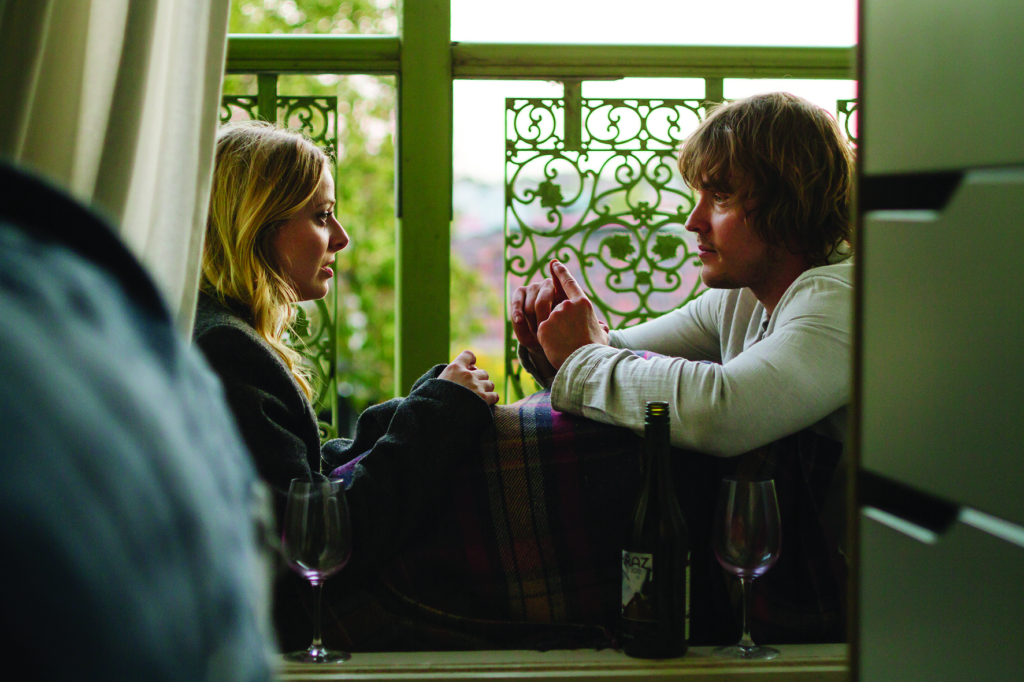
Both of you are artists who presumably spent your twenties at art school, with lofty dreams. Did either of you have one of those ‘aha’ moments when you realised your idea was better than reality?
AF: I think I had mine in a couple of stages. In my early twenties, I moved to Melbourne with this idea of going to acting school and becoming the next Cate Blanchett – as we all wanted to do – and, pretty quickly into that year, I got pretty disheartened. To be honest, I felt like it was all about what you looked like, and I didn’t want to spend my twenties trying to become prettier or thinner or whatever. But I was interested in the creative side of things as well, and I was producing work, so I moved over to the film school instead and started writing and creating; it stimulated me in such a different way. So I’ve come at it from a different angle now, a more mature angle as an actor, where I don’t feel like my currency is what I look like anymore. I feel like it’s much more, for me, about the content.
In terms of an ‘aha’ moment, I think, when we were writing the script for this film, I emailed heaps of my actor friends to ask them, ‘Why do you want to be an actor?’ And the recurring thing was, ‘Well, it’s what I’ve wanted to do since I was a kid.’ And there is that moment of going: Well, that’s not enough. Who does care?
You have to enjoy the ‘doing’ because there’s absolutely no guarantee of success. We’ve stared down the barrel of rejection for this film – we’ve been to some pretty dark places last year, as we started feeling like we were hitting our heads against a brick wall and we’ve realised you’ve got to have the joy in the doing of it […] So, if you can, liberate yourself from the idea of making it and focus on the joy of creating, and hopefully you can carve some kind of career out of that. But Greg and I make corporate videos and take wedding photos for a living as well, so it’s not like we’re solely making a living out of the thing we wholly enjoy!
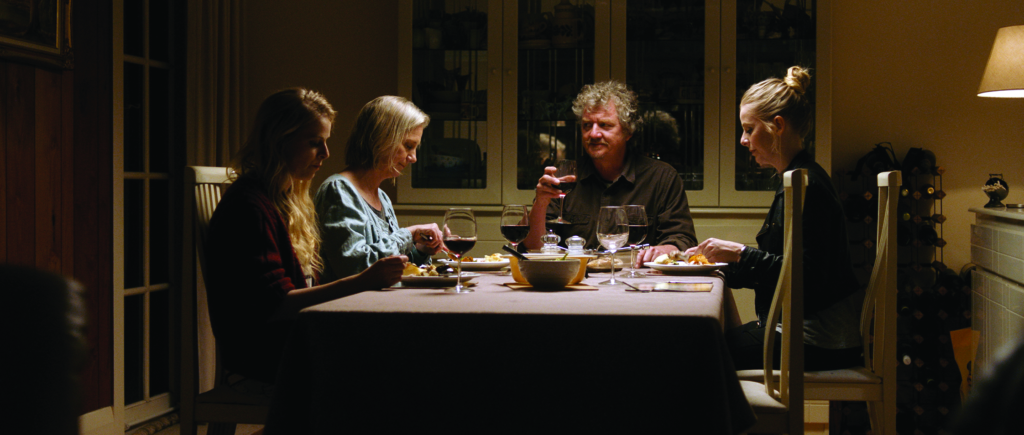
Can you tell us a bit about your process – from writing through to production, what is it like to make a movie as a married couple?
GE: I don’t really like working with Alice.
AF: He’s kidding! He’s kidding!
GE: We don’t really hover over each other, in terms of writing. We sort of work in isolation, then pass the drafts back and forth and have arguments, mostly about punctuation.
AF: Walking and talking is probably where the good stuff happens.
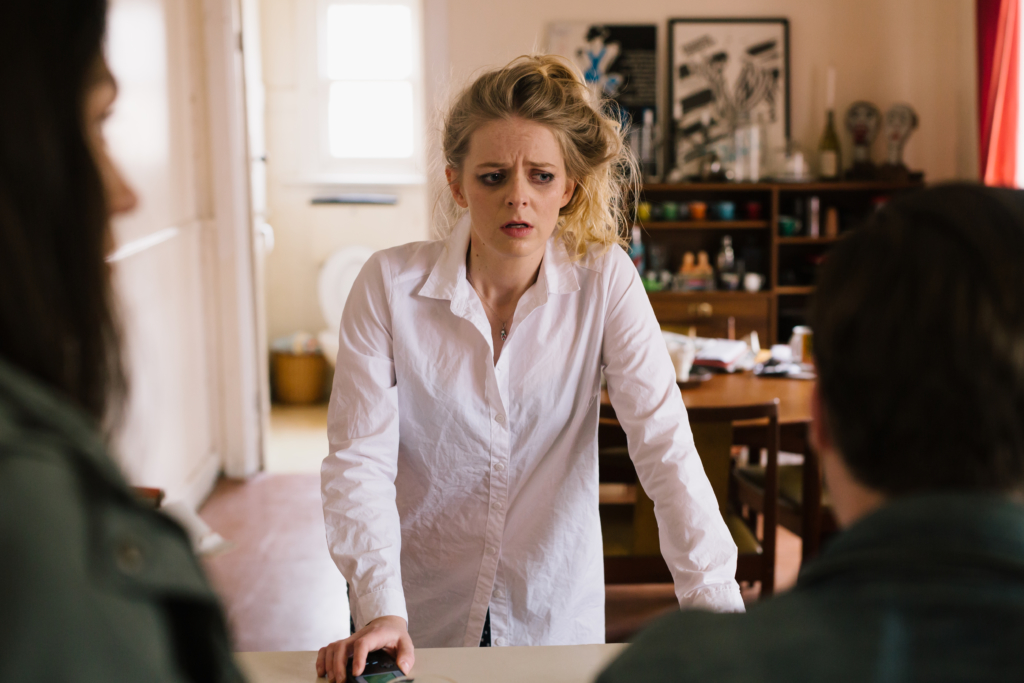
GE: Away from the writing desk is where the good stuff happens. What were some highlights and lowlights during the making of this film? And what’s your favourite scene or moment from it, now that you’ve seen it all come together?
AF: Mine is the twin scene – because, filming it, I was so nervous. I played Polly for the bulk of the film, and she’s got such a heavy headspace: she’s always being kicked while she’s down. And I was really nervous about playing the other twin because I didn’t want people to just be watching it wondering how we did it technically and looking for the differences. But it was an absolute joy on the day! [The twin] just felt totally different. And, for me, it was such a personal achievement and […] I feel really happy when I watch that scene now as well.
GE: I’m always so proud of Alice when I watch that scene; it’s such a great pay-off for the film.
What’s next for you guys?
AF: Straight to Hollywood.
GE: We’re flying out tonight.
http://www.thatsnotmefilm.com/
Endnotes
| 1 | See Travis Johnson, ‘Gregory Erdstein and Alice Foulcher: Playing the Fame Game in That’s Not Me’, FilmInk, 6 February 2017, <https://filmink.com.au/gregory-erdstein-and-alice-foulcher-playing-the-fame-game-in-thats-not-me/>, accessed 10 August 2017. |
|---|
